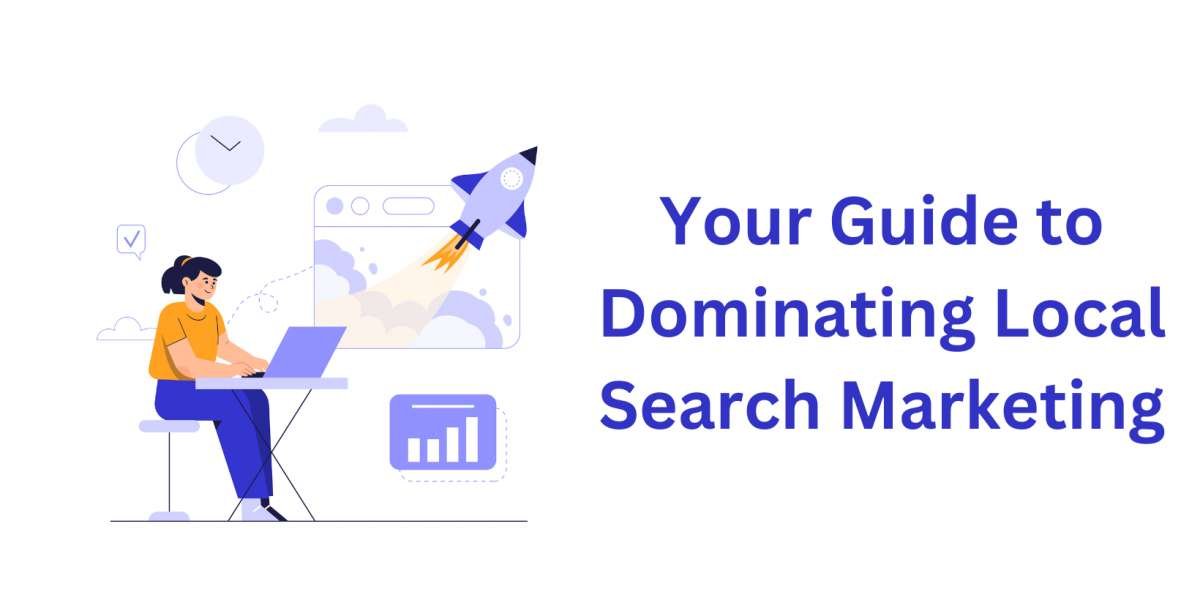In today's digital age, local search marketing is crucial for businesses that want to attract customers in their immediate area. Whether you're a small business owner or part of a larger corporation with local branches, optimizing your online presence for local search can drive significant traffic and boost sales. This guide will walk you through the essential steps to dominate local search marketing.
Understanding Local Search Marketing
Local search marketing focuses on promoting your business to customers in your geographic area. This involves optimizing your online presence to appear in local search results on search engines like Google. When done correctly, local search marketing can help your business stand out to people looking for services or products near them.
Why Local Search Marketing Matters
Local search marketing is essential for several reasons:
- Increased Visibility: Most people search for local businesses online before visiting them in person. Being visible in local search results increases the likelihood that potential customers will find and choose your business.
- Targeted Traffic: Local search marketing targets people who are actively looking for the services or products you offer in your area. This results in higher-quality traffic and more potential customers.
- Competitive Advantage: Many businesses still neglect local SEO, giving you an opportunity to stand out in your local market and attract more customers.
Key Components of Local Search Marketing
To succeed in local search marketing, you need to focus on several key components:
Google My Business
Google My Business (GMB) is a free tool that allows businesses to manage their online presence on Google, including Search and Maps. Optimizing your GMB profile is crucial for local SEO.
Setting Up and Optimizing GMB
- Claim Your Business: If you haven't already, claim your business on Google My Business.
- Complete Your Profile: Fill out all the information fields, including your business name, address, phone number, website, and business hours.
- Add Photos: Upload high-quality photos of your business, products, and services. Photos can help attract potential customers and improve your profile's appeal.
- Collect Reviews: Encourage satisfied customers to leave positive reviews. Respond to reviews to show that you value customer feedback and engagement.
Local Keywords
Using the right keywords is essential for local search marketing. Local keywords are phrases that include geographic terms related to your business location.
Finding Local Keywords
- Use Google Keyword Planner: This tool helps you find keywords that people are searching for in your area.
- Incorporate Location: Include your city, neighborhood, or region in your keywords. For example, "best pizza in Chicago" or "dentist in Brooklyn."
- Analyze Competitors: Look at the keywords your competitors are using and consider incorporating similar terms.
On-Page SEO
On-page SEO refers to optimizing the content and structure of your website to improve its search engine rankings. This is vital for local search marketing.
Optimizing On-Page SEO
- Title Tags and Meta Descriptions: Include local keywords in your title tags and meta descriptions to help search engines understand your geographic relevance.
- Header Tags: Use header tags (H1, H2, H3) to organize your content and include local keywords.
- NAP Consistency: Ensure that your business name, address, and phone number (NAP) are consistent across your website and all online directories.
- Local Content: Create content that is relevant to your local audience. This could include blog posts about local events, news, or guides.
Local Citations
Local citations are mentions of your business on other websites and directories, such as Yelp, Yellow Pages, and local chamber of commerce websites. Citations help improve your local search rankings and visibility.
Building Local Citations
- List Your Business: Ensure your business is listed on major local directories and websites.
- Maintain Consistency: Keep your NAP information consistent across all citations.
- Seek Niche Directories: Look for industry-specific directories where you can list your business.
Reviews and Ratings
Online reviews and ratings play a significant role in local search rankings and customer decision-making. Positive reviews can enhance your reputation and attract more customers.
Managing Reviews and Ratings
- Encourage Reviews: Ask satisfied customers to leave reviews on Google, Yelp, and other relevant platforms.
- Respond to Reviews: Reply to both positive and negative reviews professionally and promptly. This shows that you care about customer feedback.
- Monitor Your Reputation: Regularly check your reviews and ratings to understand customer sentiment and address any issues.
Local Link Building
Link building involves acquiring backlinks from other websites to improve your site's authority and search engine rankings. Local link building focuses on getting links from local websites and organizations.
Strategies for Local Link Building
- Partner with Local Businesses: Collaborate with other local businesses for events, sponsorships, or content exchanges that can lead to backlinks.
- Join Local Organizations: Become a member of local business groups, chambers of commerce, or industry associations. These organizations often have member directories that provide backlinks.
- Create Local Content: Produce high-quality, locally relevant content that other local websites will want to link to.
Mobile Optimization
With the rise of mobile device usage, ensuring your website is mobile-friendly is crucial for local search marketing. Many local searches are conducted on mobile devices.
Mobile Optimization Tips
- Responsive Design: Use a responsive design that adapts to different screen sizes.
- Fast Loading Speed: Ensure your website loads quickly on mobile devices. Use tools like Google PageSpeed Insights to identify and fix speed issues.
- Simple Navigation: Make it easy for mobile users to navigate your site with clear menus and buttons.
Tracking and Measuring Success
To understand the effectiveness of your local search marketing efforts, you need to track and measure key metrics.
Important Metrics to Track
- Local Search Rankings: Monitor your rankings for local keywords to see if your efforts are paying off.
- Website Traffic: Use tools like Google Analytics to track the amount and source of your website traffic.
- Conversions: Measure the number of conversions (eg, contact form submissions, phone calls) resulting from your local search marketing efforts.
- Reviews and Ratings: Keep an eye on the number and quality of your online reviews.
Adjusting Your Strategy
Based on the data you collect, adjust your strategy to improve performance. This might involve refining your keywords, enhancing your content, or increasing your efforts to collect reviews.
Conclusion
Dominating local search marketing requires a comprehensive and strategic approach. By optimizing your Google My Business profile, using local keywords, improving on-page SEO, building local citations, managing reviews, acquiring local backlinks, and ensuring mobile optimization, you can significantly enhance your local online presence. Tracking your performance and making data-driven adjustments will help you stay ahead of the competition and attract more local customers. For businesses looking to excel in local search marketing, considering hiring offshore SEO consultantscan provide the expertise and support needed to navigate this complex and ever-changing field effectively.



